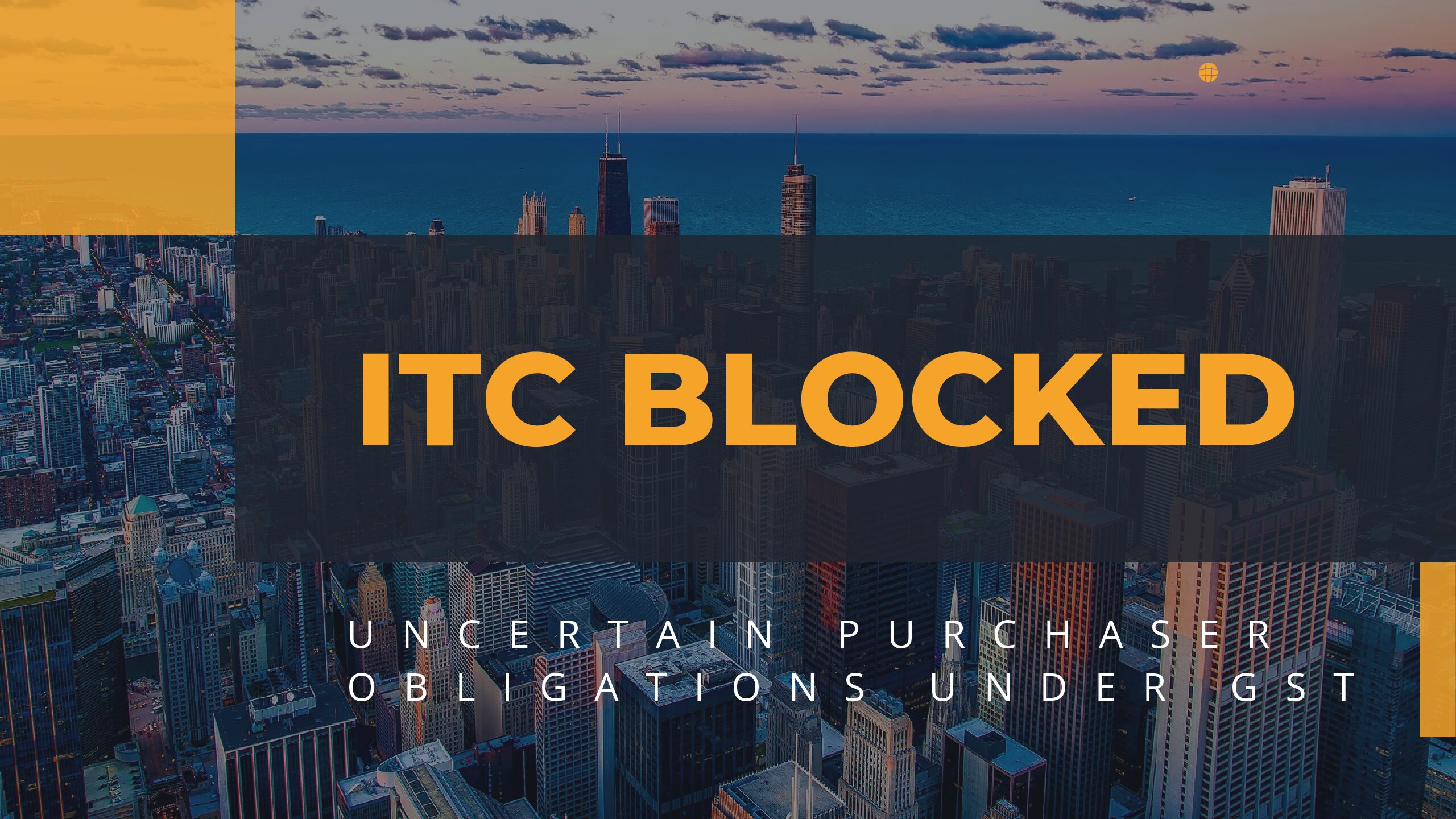On 12.06.2023, the Calcutta High Court pronounced a judgment[1] urging the Revenue to thoroughly review the petitioner’s supporting documents before rejecting its ITC claim. In the impugned case, the Revenue disallowed the petitioner’s ITC claim because the supplier’s registration had been cancelled with retrospective effect. The case is an example of how, in certain situations, the Revenue unjustifiably burdens the purchaser for the supplier’s lack of bona fide, even though it is the Revenue that belatedly discovers the supplier’s deficient credentials. I examine the High Court’s judgment and suggest that the Courts need to take a sterner view of the Revenue’s approach when it disallows an ITC claim based on inadequate examination of relevant documents.
Introduction
The petitioner filed ITC claim against supplies purchased from its various suppliers including a certain Global Bitumen (‘supplier’). Petitioner’s ITC claim for purchases from the supplier was rejected by the Revenue. The Revenue’s reasons for rejection were as follows: the supplier was fake, non-existent, and opened its bank account based on fake documents. The Revenue alleged that the petitioner did not verify the credentials of supplier, claimed ITC without the support of any relevant documents and further asked the petitioner to pay penalty and interest under the relevant provisions of GST laws.
There are two specific claims of the Revenue that are worth noting: first, that the petitioner did not ascertain and verify genuineness of the supplier; second, that the supplier’s registration has been cancelled with retrospective effect covering the period of petitioner’s ITC claim.
The petitioner, on the other hand, argued that the Revenue did not consider the documents which proved that it had purchased goods from the supplier, evidenced the transport of goods and proved that it had made payment to the supplier. The petitioner argued that the failure of supplier to pay the GST to the State cannot be attributed to it since at the time of transaction, the supplier had a valid registration and its status as a GST-registered supplier was reflected on the Revenue’s portal.
High Court Dismisses Revenue’s Claims
The Calcutta High Court observed that foundation of the petitioner’s case was that its transaction with the supplier was a genuine transaction. The High Court observed that it was not possible to determine whether the petitioner had failed to meet any of its statutory obligation unless all the petitioner’s documents relating to the purchase were examined by the Revenue. The High Court noted that the Revenue only took into consideration the retrospective cancellation of the supplier’s registration to disallow ITC claim; but did not consider other documents presented by the petitioner. Accordingly, the Revenue’s orders were set aside, and the High Court directed the Revenue to take up petitioner’s case afresh by taking into consideration other documents relating to the transaction in question.
Purchaser Obligations under GST
The Calcutta High Court, in its judgment, relied on a precedent, i.e., M/s Lgw Industries case[2], where the Calcutta High Court adjudicated a similar set of facts and ordered the Revenue to consider the petitioner’s ITC claim afresh by scrutinizing its documents to verify if the transactions in question were genuine or not. The Revenue was also directed to ascertain if the transactions in question took place before or after the cancellation of registration and whether the purchaser fulfilled its statutory obligation to verify the identity of the supplier.
It is important to note that the purchaser’s obligation extends to establishing the genuineness of the supplier’s identity which includes checking the supplier’s registration status at the time of entering the transaction. If subsequently, the Revenue finds that the supplier lacks bona fide and cancels the registration retrospectively, why should the purchaser’s ITC be blocked for transactions entered before the cancellation of registration? Blocking purchaser’s ITC is especially unfair if the Revenue is not alleging and proving collusion between the purchaser and supplier.
If the purchaser transacts with the supplier after cancellation of latter’s registration, the Revenue has a good reason to deny the purchaser’s ITC claim. However, if the Revenue cancels the supplier’s registration retrospectively, it should not invalidate the purchaser’s ITC claim if the purchaser is able to prove genuineness of the transaction. And if purchaser can establish that at the time of transaction it inquired into and verified that the supplier was validly registered.
While the Calcutta High Court in both the above-mentioned cases has taken a favorable approach towards petitioners, I suggest that the Revenue needs to be made accountable in a more meaningful manner for treating ITC claims in a casual manner. In both the above cases, the Revenue dismissed ITC claims without taking into consideration the documents presented by the purchaser. Not considering relevant documents is a cavalier way of judging ITC eligibility and gives the impression of pre-judging purchaser’s claims. The High Court directing the Revenue to consider the case afresh is a necessary but not sufficient reprimand to prevent occurrence of similar instances in the future. Courts need to consider if, in certain cases, erring officials should pay damages for not performing their statutory duties.
[1] M/s Gargo Traders v The Joint Commissioner, Commercial Taxes WPA 1009 of 2022, available at https://www.livelaw.in/pdf_upload/ms-gargo-traders-476282.pdf
[2] M/S Lgw Industries Ltd & Ors v Union of India & Ors, Available at https://indiankanoon.org/doc/109803748/
